Translations 677
Six Minutes and Twenty Seconds
SOMOS JOVENES
Six Minutes and Twenty Seconds
By Gisselle Morales
Translated and edited by Walter Lippmann for CubaNews
She may not be communist, as the National Rifle Association has begun to call her. It is most likely that he is not a communist, to be clear, but neither does she have to be a communist for me to admire the determination with which she has stood up for arms control. Her name is Emma González and she is a descendant of Cubans.
She wasn’t supposed to go through what happened, crouched in what a madman did in high school with a combat weapon. Nor should she have become the leader of a movement that demands the right to life over the right – “blessed be the Second Amendment” – to own and bear arms. Politicians over the age of eighteen should be responsible for ensuring the safety of citizens.
“If the president comes to tell me in my face that he regrets this tragedy, which should not have happened, I would ask him how much money he receives from the National Rifle Association,” she had cried out to the crowd outside the Fort Lauderdale Federal Court, just days after the massacre, to ask the government for regulations to stop the lucrative arms trade.
But Trump, who often has the delicacy of a hippopotamus, didn’t think it would be a good idea to ban the sale of automatic rifles to citizens with psychiatric histories. The first thing that came to his mind – and he shot off his mouth without thinking too much – was the proposal to distribute weapons to teachers and students, bulletproof vests. After that, turn it off and let’s go.
Luckily, Emma Gonzalez and the rest of Parkland’s survivors have it made it clear: they had warned about Nikolas Cruz’s mental problems and are sure that the nineteen-year-old boy would not have done so much damage with a knife.
It is true that spooky assaults do exist, because some people cut themselves and even kill themselves with machetes and knives at popular festivities or in any corner fights, but there is no comparison between the magnitude of both types of killings.
That is why, on Saturday, March 24, 2018, while young people, adults, the elderly and children were demonstrating in the main American cities, and in cities around the world the, rise of the pacifist movement gave it a universal character. Emma González, wearing an olive green jacket with a Cuban flag sewn on her right shoulder, stood in front of the microphone in Washington and was silent; a silence of almost six minutes and twenty seconds, just the time it took the shooter to kill seventeen students and traumatize a school, a city, a state, a country forever.
Emma González, a descendant of Cubans, knows it like no one else: there are silences which speak volumes.
Originally published in the blog Cubaprofunda.
Crossings

Crossings: Eleven Ways to Be, to Exist and to Enter the “Closet”
May 20, 2012
By: Marta María Ramírez
Translated and edited by Walter Lippmann for CubaNews.
Crossings: eleven ways of being, coming out and entering the closet
In this article: 11 Havana Biennial, Art, Havana Biennial, CENESEX, Cuba, Culture, Havana, Manuel Mendive, Mariela Castro Espín, Sexuality, Society
20 May 2012 | 33
By: Marta María Ramírez
11 exponents of the plastic and visual arts from Cuba gathered in a collective exhibition to represent the experience of homosexual people in the public recognition of their sexual preference.
They were joined by Mariela Castro Espín, director of CENESEX, whose idea was not only original, but also part of the curatorship of Travesías, the title of the exhibition, which opened at the Rubén Oliva Gallery in the capital’s Bertold Brecht Cultural Center.
“To understand the stories of suffering and happiness it has been essential to listen. We saw the possibility of telling it through art and the looks of these artists, whom I invited,” said Mariela.
For the Cuban sexologist, who makes her debut as a curator in the visual and plastic arts, “decision-making is always a journey. It is necessary to show what these people experience because their experiences can be very cruel.
Manuel Mendive was the first to enlist. Mariela went on her search to her retreat-study in the rural town of Santa María del Rosario.
“I’m very excited about the idea. It is a challenge to represent a process that can be difficult because of the homophobia that reigns in the world, including in Cuba,” Mendive told me at the time.
The famous plastic artist is accompanied by Adonis Flores, Alejandro Calzada, Carlos Martiel, Elizabeth Ceviño, Humberto Días, I.A., Lázaro Saavedra, Marianela Orozco, Ricardo Rodríguez and Andrés D.Abreu, the latter sharing the curatorship with the sexologist.
“Each artist has communicated in their own way, with their own codes and in the way they interpreted this reality,” said Mariela.
It is not the first time in Cuba that people have created and exposed their perceptions of homosexuality. However, the contribution of Travesías lies in the fact that it is the result of a workshop in which creative people exchanged with gay, lesbian, transgender and heterosexual Cubans in March 2012.
Questioned about the reasons for the choice of plastic and visual arts, the sexologist said that “since the Havana Biennial was coming, there was an opportunity to use it as a communication resource”.
In this sense, D.Abreu pointed out that “art has shown that it is part of that great accumulation of things that make up the imaginary and thought of society. I can’t say that it alone is a transformer, but that it helps the transformation, so you have to take advantage of his possibilities.
“Three spaces for debate were created. One discussed what it felt like and how it was like to be inside the closet, because they fear that society would reject them; another group was for people who had freely decided to be who they are, and a last group was for those who are still in the process, in the journey,” he said.
Travesías, sponsored by the Brownstone Foundation, will be open to the public until next June, as part of the collateral activities of the 11th International Conference of the Red Cross. Havana Biennial and the V Cuban Day Against Homophobia
Mariela Castro lectures in Finland
ANPP Deputy Mariela Castro Espín lectures at the University of Helsinki
May 30, 2018
Translated and edited by Walter Lippmann for CubaNews
Cuban Congresswoman Mariela Castro Espín, director of the National Center for Sex Education (CENESEX) of Cuba, gave a keynote speech on Monday at the School of Social Sciences of the University of Helsinki, which was attended by about a hundred people.
Among those present were Tarja Halonen, former president of Finland, Eduardo Lazo Pérez, Cuban ambassador, authorities of the Deanery of the aforementioned faculty, as well as professors, students, Cubans living in the Nordic country, members of the Finland-Cuba Friendship Association, journalists and businessmen.
In her presentation entitled “Sexuality education in the social transformation processes of the Cuban Revolution”, the expert from the largest of the Antilles argued how sexuality education was shaped in the social policy of the Revolution from the early stages of the process, and the role of the Communist Party of Cuba and the Federation of Cuban Women in the recognition of sexuality education as the responsibility of the State.
After the remarks by the Director of CENESEX, the former Finnish President, current President of the Board of Directors of the University of Helsinki, took the floor. She praised the Cuban experience in the treatment of the aforementioned issues, explained their historical evolution in Finland and the current role of the United Nations in this matter and thanked the Cuban representative for the conference given.
Those attending the meeting had the opportunity to ask questions and exchange ideas with the Cuban parliamentarian, who received her Doctor Honoris Causa degree in Psychology from the Åbo Akademi University in Turku on May 25
(With information from the Cuban Embassy in Finland).
Support for Gun Control on the Rise
A Mass Killing Filled the Glass. Now it Must Be Emptied

By Manuel E. Yepe
http://manuelyepe.wordpress.com/
Exclusive for the daily POR ESTO! of Merida, Mexico.
Translated and edited by Walter Lippmann.
The shooting that broke out in mid-March at the Parkland student complex in the state of Florida, which killed 17 students and teachers, was greeted in the United States with a sense of fatalism that that the public was destined to become familiar with. While still howling ambulances with their cargo of bodies and survivors in the direction of the hospitals, the authorities of the country, the state and those of the center itself began to make clear their prayers and laments, expressing their deep regret and anguish for what had happened.
A few voices rose to condemn the facts without venturing to blame anyone or anything for the horrible crime. Paul Ryan, a Republican leader in the U.S. Congress and second in the line of presidential succession (after the vice president), warned against unthinking, overly sentimental reactions.
But, surprisingly, something strange happened: the students of the Marjory Stoneman Douglas Pre-University in a gathering that they called to that effect, came out against official inaction.
“Every single person here today, all these people, must have been grieving in their homes. But, on the contrary, we are here today united, because if all our government and our president can do is let us know their sorrow and their prayers, we think it is time for the victims to be the motivation for the changes we need to see,” said student Emma Gonzalez in tears and sobs on behalf of everyone.
“To the politicians who remain in their golden seats in the House and Senate, funded by the National Rifle Association (NRA) telling us that nothing could be done to prevent that we call B.S.,” the student leader said.
The broadcast of her speech was cut off, but that last sentence of Emma’s words became the slogan calling for gun control that would lead the plans for an upcoming national student strike and march on Washington.
A substantial article by George Zornick, editor of The Nation, argues that the power of the NRA as a protective shield for the freedom to buy and sell arms in the United States is rapidly being demystified.
As proof, Zornick says that last November in Virginia, the NRA backed Ed Gillespie as a Republican candidate for governor and he was widely defeated. It supported 13 candidates competing fiercely for seats in the state House of Representatives and 12 of them failed, while the other won by a narrow margin.
At the Virginia state level, gun control advocates have been able to obtain the passage of resolutions and measures that have not been passed by the state legislature, although it should be noted that this occurred when the movement was not as strong as it was after the Sandy Hook massacre in 2012 when the largest pro-arms control groups were formed.
It should also be noted that Democratic politicians, until recently, never spoke out against gun control for fear of the NRA’s wealthy congressional lobby.
“For the characteristics of our ossified political system, and especially with Trump in the White House thanking the NRA for the $30 million it donated to his campaign, the United States will never pass gun control legislation. But while waiting for the time to elect a new congress and a new president, something can be done considering that arms manufacturers value above all other things, even more than human life: money,” Zornick says.
The journalist from The Nation calls on activists to help deal a decisive blow to these traffickers by withdrawing financial or commercial support from their companies until the arms industry becomes an unviable business. In 2013, the California State Teachers’ Retirement Fund voted to divest itself of millions of dollars in gun industry investments.. The same was done in 2016 by the New York City Public Employees Pension Fund, which also withdrew funds from other large sporting goods stores that deal in arms.
Today, the arms giants are full of debt and face a decline in consumer demand. Centers such as GoodbyeGunStocks.com have been set up to inform about stockholding entities that trade in arms to guide activists eager to boycott those who do so.
The relentless shootings that kill innocents have filled the cup of resistance of the American citizenry. Its assimilation capacity is running out and if that giant rises it would not be unusual for the arms business to be forced to start a countdown sooner rather than later in the United States and around the world.
May 31, 2018.
Demonizing Defenders of the Peoples

FROM THE LEFT
The dominant world power demonizes those who defend the peoples
Without the de-demonstration of Kirchnerism, it is impossible to understand the different policies being pursued in the country, and half the population will continue to be subject to constant deception. Economic power has the great capacity to permanently change its discourse to cover up every new step it takes in the looting it carries out.
—————————————————————–
Author: Carlos A. Larriera | internet@granma.cu
27 May 2018 20:05:48
A CubaNews translation.
Edited by Walter Lippmann.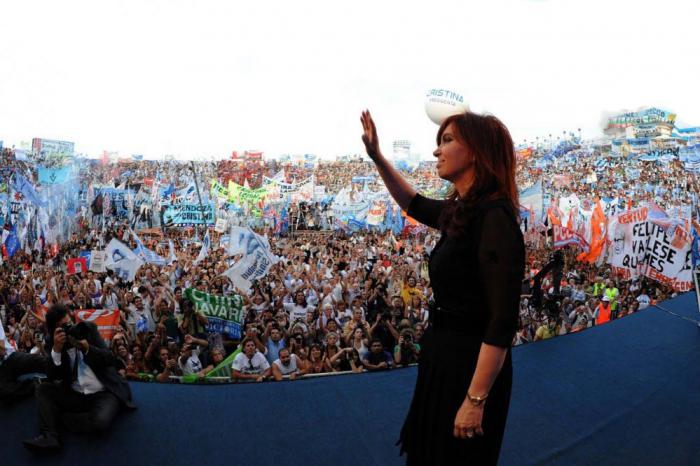
Photo: Pagina 12
There is no fact that justifies the closed hatred of many people with Cristina Fernández de Kirchner (CFK) embodying Kirchnerism in general.
This hatred is deep in the bones of a large part of the population, based on the very effective media campaign that “reported” many actions of the previous government that never happened, but they did so following “post-truth” methodology. That is, “it doesn’t matter if what we say is true, but if people believe it”. Of course, in order to achieve this, they had a near monopoly on all the media, TV, radio, newspapers, magazines, internet, etc.
For those people who are interested in knowing the truth and doing small or large investigations on their own, alternative websites were enough to expose the lies of the government’s dismissive opposition to the previous government, and those of the current government. But a large part of the population does not carry out this task. And the progressive press, like Page 12, was also demonized, and still is.
To create such a false negative image of CFK, they also used a propaganda apparatus aimed at manipulating people’s subjectivity instead of arguing, with some basis, using real facts. Not only was and is Durán Barba, but a whole team of publicists, Argentine and foreign, many of them appointed by the U.S. Embassy, who organized the “subliminal” campaign against Kirchnerism.
The previous one was a middle-class government, which respected the general functioning of capitalism; therefore it did not affect economic concentration, large agrarian property and the economy in its almost totality in private, foreign and oligopolistic hands. At the same time, it carried out a very important series of social reforms and infrastructure growth more than any other government in Argentine history, as well as the extension of human rights.
Without directly confronting the concentrated and centralized international capital (CCyCI), which is the true power that dominates Argentina and the world, it laid the foundations for a more integral economic development, promoting science and technology, education, health, employment, retirement, the interconnection of long distances with electricity, the beginning of the reconstruction of railways, sewage pipelines, running water and in general it laid the foundations, to a certain extent, for a greater “growth with social inclusion”. In addition, it was freed from the burden of foreign debt, albeit by paying millions of dollars, but much less than the nominal demand for it. The country thus acquired a certain degree of economic independence, and the increase in the number of schools and universities, the recovery of technical schools, the return of more than a thousand scientists to the country and the construction of laboratories to enable them to carry out their work at the level of global technological progress. It manufactured three satellites entirely in the country, which placed it in eighth place in this area.
However, the international CCYCI remained intact, made large profits and continued its concentration, centralization, foreignization, oligopolization and privatization.
Despite all this, the Kirchnerist government was unbearable for the CCYCI for a multitude of reasons. In the first place because it hindered their open and implacable plundering, as the current government does. Second, because it showed that within capitalism one can live better, and that was increasingly incorporated into the consciousness of the people, who could not know that under capitalism it is impossible to maintain that improvement for long.
Big capital always ends up annulling these reforms in one way or another. Thirdly, because a large part of the population began to understand, albeit with distortions inherent in the class-conciliation ideology of Kirchnerism, the nature of the CCyCI, its global economic power, and this increased awareness was becoming increasingly dangerous to the power of big business.
It is now said that CFK cannot be a candidate because she has a limited ceiling as a result of this demonisation. It cannot be that there are candidates, not just CFKs, who are demonized and therefore unable to stand for election, or at least see their presentation as very restricted.
It is necessary to know the differences, on the one hand, of a government with all its limitations such as Kirchnerism, but which had sincere intentions to promote “growth with social inclusion”.
The main need for the de-demonstration of Kirchnerism lies in being able to see reality objectively, in being able to see the differences between one government and another, between its different politicians, and in its different objectives: the previous “growth with social inclusion”, the current one, looting.
And this difference in objectives is reflected in different repressive policies. The previous government promised not to repress social protest, and as far as the national government is concerned, it did 90%. The strategy of the current government is to repress social protest, to repress dissenting voices, to repress anything that may come between its policy of looting with greater or lesser force. The latter is complemented by a very effective and sophisticated policy of deceiving the people. This deception must be fought.
Under the previous government, the social struggle was mainly focused on improving living conditions, on going for more, with practically no repression of social protest. In today’s world, the social struggle is increasingly dedicated to preventing murder, repression, unjustified imprisonment, and the freedom of political detainees; in short, the struggle is essentially defensive, rather than “going for more”.
Without the de-demonstration of Kirchnerism, it is impossible to understand the different policies being pursued in the country, and half the population will continue to be subject to constant deception. Economic power has the great capacity to permanently change its discourse to cover up every new step it takes in the looting it carries out.
The songs insulting the president reveal that a good part of the people have taken note of what the real policy of this government is. The dominant power has a great capacity to permanently deflect political protest that is directed directly at the president and the government in general by constantly inventing scapegoats to replace them. Big capital is causing the crisis, the population is increasing its resistance. The economic power itself is working to divert this protest to the representatives closest to the people, who are the ones who disturb the power.
The de-demonstration of Kirchnerism is a necessary condition for advancing in the general consciousness of the people, without which victory over the current dominant world power is impossible.
My Return to Alma Mater
My Return to Alma Mater, or, Proximities and Political Clashes
May 31, 2018
Translated and edited by Walter Lippmann for CubaNews.
Thanks to Alma Mater, specifically its director Mayra García Cardentey, for insisting that I write again for the magazine of the Cuban university community, the one in which I once collaborated in the early 1990s, when I was still studying journalism.
I remember with particular satisfaction those years when the publication almost disappeared due to lack of paper, and with a thousand efforts we rescued it in a tabloid format, almost a pamphlet, of bad material and worse printing, which luckily never came back.
With not very different difficulties for its print run in this 21st century, its young collective decided to bet on new technologies, and does not wait for its graphic editions to disseminate the texts it produces and proposes to its reading public.
So it is an honour for me to be able to collaborate again with the magazine founded by the beautiful and courageous communist Julio Antonio Mella, as far back as 1922.
Now, no longer so young or unredeemed, I offer only my humble opinion on matters where it is the new generations who teach me a little more each day, and I – a tepa that I refuse to grow old – try to accompany them at the rate that my (in)capacity allows me.
Here I am reproducing the comment that I was published in Alma Mater.
Political debate and social networks in Cuba: Proximities and clashes
Social networks on the Internet are a relatively new and growing scenario of political participation, which in Cuba complements the options, not infrequently too formal or uniform, that we already had for the exchange of ideas.
It’s not often, but still happens, that someone tries to question the motley and seemingly chaotic political affiliation of my friends on Facebook, or the strategy of moderating comments on my blog www.paquitoeldecuba.com. The answer I give is almost always the same: in order to exchange with fellow members I already have enough space, I am interested in debating and learning about other points of view.
I use this personal example to illustrate an increasingly evident reality. Social networks on the Internet are a relatively new and growing scenario of political participation, which in Cuba complements the options, not infrequently too formal or uniform, that we already had for the exchange of ideas.
It is no secret that regardless of the extroversion and spontaneity with which Cubans ventilate about any economic, social or political aspect of daily life, the specific forums for such discussion – including political, student, professional and mass organizations – can be quite reluctant or hermetic to channel or reflect in public the natural diversity of thoughts that exist within them.
Faced with this fact, social networks would seem to be in the Cuban context a much more flexible, horizontal and visible alternative for direct confrontation between different political positions. But beware. Let us not be too naive either.
Block or learn to accept?
Asymmetry is the first and main flaw that I would identify in that ideal state of participatory and democratic dialogue that social networks on the Internet want to appear to be (and to some extent achieve).
In the very nature of its functioning, the interests and ideology of capital and the system that represents it predominate: capitalism. We may or may not be aware of, be or not more sensitive to or aware of the manipulation that is proposed to us as a tendency, but it is an element that we should not ignore.
Advertising, consumerism, violence, individualism, are motives that from their innards – hidden or not – drive the networks. Of course, it is possible to take a critical, political stance in the face of these proposals, and even to oppose them with other values that we would pretend to be closer to Cuban society, such as humanism, solidarity, altruism and equity.
But this implies, without a doubt, an intense and profound training in the art of doing and influencing politics. And here comes another key disadvantage for our people, beyond even any generational or other considerations: the lack of civic practice we have of political debate, and I would add that of almost any kind of debate.
Agreeing or finding a consensus between more than two people can be complicated in our daily lives. It is still very difficult for us to listen to and respect a different approach than the one we defend. As a result, even in the midst of an alleged dialogue on social networks, violent reactions, offenses and disqualifications can abound, and ultimately it is easier for us to block, eliminate and disappear the other person from our contacts than to try to reason or accept disagreement.
Crimes of cordiality against them
There are concrete practices in the management of social networks that favor or hinder political debate among several people or groups of people. Without pretending to make a recipe book, because everyone builds their cyberspace according to priorities and interests, I would risk commenting on some variants according to my experience.
The first thing is the audience we select and give access to our profiles or admit them to our personal pages. As I said at the beginning, there is not much use – if we want to promote a political exchange, and not just maintain family or playful relationships in the networks – in reducing our circle to those who think in a very similar way to ourselves.
Here I would like to warn about a curious phenomenon that social networks on the Internet reveal within the Cuban political spectrum: the wide variety of positions on dissimilar issues, even among friends, colleagues, relatives and other people who perhaps in other contexts would seem to have coinciding positions.
The feasibility of a freer discussion, with a greater number of actors and actresses, today gives as a result of the political debate in the social networks a clearer and more public perception that unanimity is not necessary – impossible, moreover – to achieve unity, as long as we do not intend to impose a single line of thought or action. It is also important not to be invasive or abusive of other people’s spaces. This recommendation applies to any use of networks, but is particularly relevant when we talk about political debate.
Labeling other people constantly in our publications, indiscriminately breaking into other people’s walls, introducing or replicating information that is foreign to a discussion already underway, to take advantage of the visibility of a debate that we are not initiating, are some of the crimes against cordiality that are most damaging to the healthy and respectful exchange of criteria in social networks and other collaborative spaces on the Internet.
New and renewed militancies
I could not conclude this brief analysis without mentioning the importance of social networks to stimulate, make visible and coordinate multiple social and political activities in Cuba today.
With a traditional civil society whose institutions may seem to us to be aging or which subsist more because of the inertia and convenience of political power than because of its effectiveness in mobilizing citizens, cyberspace – with its social networks, blogs and other alternative publications – would seem to be reactivating and even creating militancies that did not exist in Cuba or were not very visible enough to achieve real political impact.
Issues such as racial, gender, sexual orientation or identity discrimination, animal and environmental protection, among many other noble and controversial causes, with political implications and debts still important in our context, emerge in social networks through multiple individual and collective initiatives.
On more than one occasion, they have already managed to overcome scandal or media pressure to achieve specific solutions or actions on the part of the institutions or entities responsible.
In this effort, the work of the most formalized organizations and organizations is praiseworthy for trying to insert their messages and communicative proposals into the whirlpool of the Internet, and even to stop and provide a direct response to the people who demand and control them through social networks. This can contribute in the medium and long term to articulating a more direct relationship between the State and the government with the citizenry. Also through these digital channels, in what would be another way – with the addition of their greater transparency, immediacy and public character – of strengthening the participatory and democratic ideal of socialism.
Who is Paquito el de Cuba?
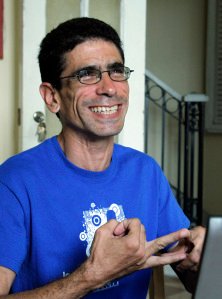
Cuban blogger Francisco Rodriguez Cruz known as Paquito from Cuba declares:
I am Fan of Jose marti, I am journalist communist and gay Photo taken on
Sept.29.2010. in Havana, Cu ba By Jose Goitia
I am Paquito, from CUBA; I am a Marti follower and a an author; I am a communist and gay journalist; I am a convinced and superstitious atheist; I am the father of a son whom I have adored and have been a partner for fifteen years with a seronegative man who loves me; I have been an AIDS patient since 2003 and am a survivor of non-Hodgkin’s lymphoma for more than twelve years; I am a university professor and a student of life; a follower of Cuban economic issues and a passionate devourer of universal literature; an incontinent and belligerent moderate; a friend of my friends and a compassionate friend of my enemies; often wrong and never repentant; a hardened and eternal enthusiastic optimist; alive and kicking; in short, another ordinary man who wants to share his story, opinions and desires with you…
Venezuela Will Continue to Resist

Venezuela Will Continue to Resist
 By Lázaro Fariñas
By Lázaro Fariñas
digital@juventudrebelde.cu
A CubaNews translation.
Edited by Walter Lippmann.
With reference to the last elections that took place in Venezuela only a few days ago, we must remember those who said: do what I say, not what I do’. Those who call themselves the international community’ are furious that the Venezuelan government has called a presidential election, carried it out and won it.
Aren’s elections one of the demands made by these so-called constitutional governments of the West? If so, why were they opposed to Venezuela carrying them out? Why did they demand that the opponents boycott them? Afraid they’d go to the polls and lose?
They got it right and came to the conclusion that it would be impossible for them to beat Nicolás Maduro at the polls, so they decided to boycott the electoral process that they themselves had demanded so strongly.
When mobs took to the streets to burn down buildings and some declared that they wanted elections immediately, when part of this fragmented opposition went to the talks in the Dominican Republic, the first demand was also for “elections now”.
It was then that they realized that, if they lost in the elections, they had only two options: to declare that a fraud had occurred or to recognize the legitimacy of the Bolivarian ruler and, therefore, to accept him before public opinion as the legitimate president of the country. Since that is not what they wanted to do, they decided to go down the road of non-participation and denunciation.
First, they left the Mesa de Diálogo and then they began with the international campaign, in which they declared the election call spurious. Then they accused accusing the opposing candidates, who did agree to participate, of playing the Chavistas game. In other words, they saw as illegitimate an action that they themselves had previously demanded from the Bolivarian government.
The votes, according to their criteria, were fraudulent. But how could that be if they hadn’t even been cast? In this they were not even original, as they were copying what Donald Trump had previously stated during his election campaign for the presidency of the United States.
Although perhaps I am exaggerating a little when I say that they were not original, since on second thought, they have said this every time they have participated or not in the marathon electoral processes in Venezuela during the last 20 years. In those leaderships, the opposition won twice and the government acknowledged the results, but when the government won, the word fraud was always used.
The 2013 presidential election, in which Maduro beat Capriles by just over 200,000 votes, by just over one percent, was a cheat for part of the opposition. How was it possible that the government had engaged in fraud and succeeded by such a small margin? Who would think of cheating and getting so small a margin of victory?
On this occasion, as on so many others, the opposition was accompanied by the so-called “international community”. It’s is made up of the United States Government, the governments of the European Union and their loyal followers in Latin America. For example, Brazil, which is governed by the most unpopular president in its history and is also the product, not of the results of elections, but of a parliamentary coup d’état, and Peru, where the president was appointed in the face of the resignation – due to corruption – of the constitutional president.
This misnamed “international community” says it does not recognize the Venezuelan elections and their results. We should ask ourselves what matters to Venezuelans what this group of nations recognizes or does not recognize?
In 2013, opposition candidate Henrique Capriles had no choice but to acknowledge his defeat, but since then, European governments, the United States and other nations have accused Nicolas Maduro of being an illegitimate dictator and have imposed unjust sanctions on him.
The campaign against Venezuela has been intense by the big media allied to the international right, by the colonized opposition, by the parliaments and by the governments of the West. However, the Bolivarian government has resisted. Who says it’s not going to resist now?
One For All
 One For All
One For All
By Eldys Baratute
January 16, 2018
Translated and edited by Walter Lippmann for CubaNews
Dayana the thinker knows that other Dayanas live next to her: the smiling Dayana, the annoying Dayana, the cowardly Dayana and the Dayana who takes the blue pills. Although they live together, they are very different from each other.
Dayana the thinker is in charge of analyzing and criticizing everything that the others have done. The smiling Dayana spends the day cheerful, as if someone were tickling her. The annoying Dayana breaks plates on the floor, shouts, hits and curses. The cowardly Dayana is afraid of everything and prefers to spend her time huddled in a corner, afraid of being hurt. And the Dayana who takes the blue pills is in a rut all the time, looking at a lost spot on the horizon, as if she were looking for something but she doesn’t know yet what it is.
All Dayanas are happy, in their own way, all but the Dayana who takes the blue pills. Dayana the thinker enjoys criticizing what the others do. The laughing woman doesn’t need any reason to laugh, she knows she’s happy, even if she doesn’t know why. The annoying Dayana finds happiness when she hears the plates breaking on the floor, when she feels the crash of her swear words against the wall or her fists against the door. The cowardly Dayana is happy because she has a space in which to snuggle, even if it is small, dark, and uncomfortable, but her own. But the one who takes blue pills can’t find happiness anywhere, she doesn’t even bother to look for it.
Every Dayana dreams, except the Dayana who takes the blue pills. The thinker dreams that she will be an important philosopher, that she will go around the world giving conferences, just as important and that many thinkers follow her and ask her for autograph. The smiling Dayana dreams that one day she finally discovers the reason for her laughter, and that makes her laugh even more. Sometimes, while she sleeps, the others hear loud laughter, which stirs up the house. La Dayana annoys dreams that sometime, when she manages to spend 7 days and 645 hours, 43 minutes and 6 seconds screaming in front of the sea, all her annoyance will disappear and she would be a normal Dayana, without breaking the plates, shouting, hitting or cursing. The coward dreams that she is an amazon, or a knight in armor, or a cowgirl, or an armed policewoman, who goes out to defend others.
But the one who takes the blue pills hardly ever dreams, and when she does, all she sees is a white ceiling on top of white walls. That’s why, because she has no dreams, she never closes her eyes and prefers to look at a faraway spot while swinging on an armchair. That really worries the others. They know that the fault lies with those blue pills that force her to look for something on the horizon, something she herself doesn’t even know what it is. So they decided to throw away the tablets once and for all. Only then would that Dayana find happiness.
Dayana the thinker kept thinking about all the possible solutions to eliminate them from the face of the earth. The smiling Dayana went to find the scientist who invented them to ask him, on her knees if necessary, not to make them again. They weren’t doing anybody any good anyway. The annoying Dayana went out to look for a crane that would demolish every pill factory in its path. The cowardly Dayana wanted to buy all the medicines in the world, but when she stood in front of the pharmacy counter she was afraid that the salesgirl would ask for prescriptions, methods and cards and ran away.
They all came back empty-handed. Dayana the thinker had run out of new ideas. The laughing girl couldn’t find the scientist who invented the pills. The annoying woman couldn’t get fuel for her crane and the coward…
Then they all came up with a brilliant, brilliant idea, an idea that can only be possible when several days come together. They worked together all night, side by side, as if instead of four they were one. The next day, when the Dayana taking the pills got out of bed, she noticed that instead of blue the pills were white, red, purple, black and pink. She ran through every corner of the house in desperation. In the library she found Dayana the thinker philosophizing about the existence of man. In the courtyard she found the smiling Dayana, happy because a sunflower had bloomed. In the kitchen, she found the annoying Dayana braking plates. In her dark corner she found the coward, huddled as usual. Everything was normal. The only thing he didn’t find were the blue pills she thought she couldn’t live without.
For the first time in a long time the Dayana of the Blue Pills went the whole day without taking any. At first she was smiling, then upset, then she was scared to the minute and then she thought about everything she had done since dawn. It was one and several days at a time.
But that night, whens he huddled in her bed, she began to see for the first time the white walls of her dream, of all colors.
Independence Sentiment Rising in California
Independence Sentiment Rising in California

By Manuel E. Yepe
http://manuelyepe.wordpress.com/
Exclusive for the daily POR ESTO! of Merida, Mexico.
Translated and edited by Walter Lippmann.
In the face of the madness (or idiocy) of the current President of the United States and the obscure perspectives offered to the citizens by his eventual successors, it is worth remembering that secession is not only a matter of American history, but is an extremely topical sociological and political issue.
Two epic cinematic adventures: “Gone With the Wind”, filmed in 1938 and “Cold Mountain”, a successful novel brought to the big screen in 2003, took wars of secession to shape their plots and rivalries, as well as to denounce dreadful actions on both sides in rejecting the madness of a possible new fratricidal war in the United States.
Technically, if California, which is the richest state in the United States, were to become independent, it would have to overcome two filters: that of the California Constitution itself and that of the U.S. Constitution.
California’s independence movement has existed legally since 2014 and has as its main exponent in an organization called Yes California. It is not a political party and has no elected officials, but it is already nicknamed Calexit (after Brexit in Britain) and has over 25% of the working population in support.
For the time being. Calexit does not claim to be the heir to the American settlers who, after rising on June 14, 1846 against the Mexican authorities, proclaimed an ephemeral independent Republic of California. Later they reluctantly renounced it in exchange for accepting annexation to the United States.
For this reason, the idea that one day the independentistas will be Latrino Californians is not to be dismissed. Neither their their motivation for their emergence will be the 1848 Treaty of Guadalupe, by which the United States took away from Mexico -among other territories- that of present-day California, where they imposed the English language.
California’s economic legitimacy as an autonomous nation would be based on the fact that it now pays about $100 billion more than it receives from federal funding, which makes its economic argument appear as a human rights issue. This is because “the Universal Declaration on human rights states in its Article 20 that no one can be forced to belong to an association” and its “right to self-determination” will always take priority over US [federal] law.
Therefore, there would be no need for a constitutional amendment to separate from the United States and integrate it into the international community, in which it would undoubtedly need to be recognized immediately.
In 2016, Red Guard, a self-proclaimed Communist group from Austin, Texas, caused a stir after taking the lead in a demonstration of the Black Lives Matter movement with red flags and guns. It announced its decision to fight against the spread of fascism in the United States.
The confrontation in the streets did not reach violent levels, but it was transferred to the social networks as a reflection of the escalation of social tensions that the country was experiencing. Washington has continued to move around the world stimulating secessionist sentiments as part of an imperialist scheme destined to overthrow foreign governments that were not subordinated to its foreign policy.
However, the United States itself was beginning to exalt similar aspirations to the exercise of sovereignty on the part of those who were the first settlers and true owners of the territory that today form a large part of the states that make up the United States.
The “Yes, California” independence movement, took it’s first legal steps November 21, 2017 towards the secession of California from the United States when presented to the state Attorney General a proposal to call a referendum aimed at this objective.
The separatist idea must gather enough preliminary support in a vote to be held in November 2018. For the referendum to be held, the Yes, California’ movement must collect half a million signatures to place the initiative on the ballot.
If the initiative succeeds because of the support for Calexit, Californians will go to the polls in the spring of 2019 for a historic vote that would decide whether or not California should leave the Union. The plebiscite would be based on article two of the state constitution, which indicates how citizens of the territory can decide whether they belong to the United States.
When, in January 2008, then-President George W. Bush declared himself jubilant because “the Kosovars are now independent” and recalled that this was “something that I have defended together with my government”, several of his allies warned the United States of the danger that this statement represented for the international community, the Security Council, the European Union and the territorial integrity of the United States of America itself.
May 29, 2018.
The U.S. Has Many Problems

America has a lot of problems, and Trump is targeting others.
Very serious in her assessment, Hillary Clinton said, “Our country is more polarized than ever. We ourselves have classified into opposite camps, and they divide how we see the world.”
Posted: Saturday 26 May 2018 | 09:56:09 PM
 By Juana Carrasco Martin
By Juana Carrasco Martin
juana@juventudrebelde.cu
A CubaNews translation.
Edited by Walter Lippmann.
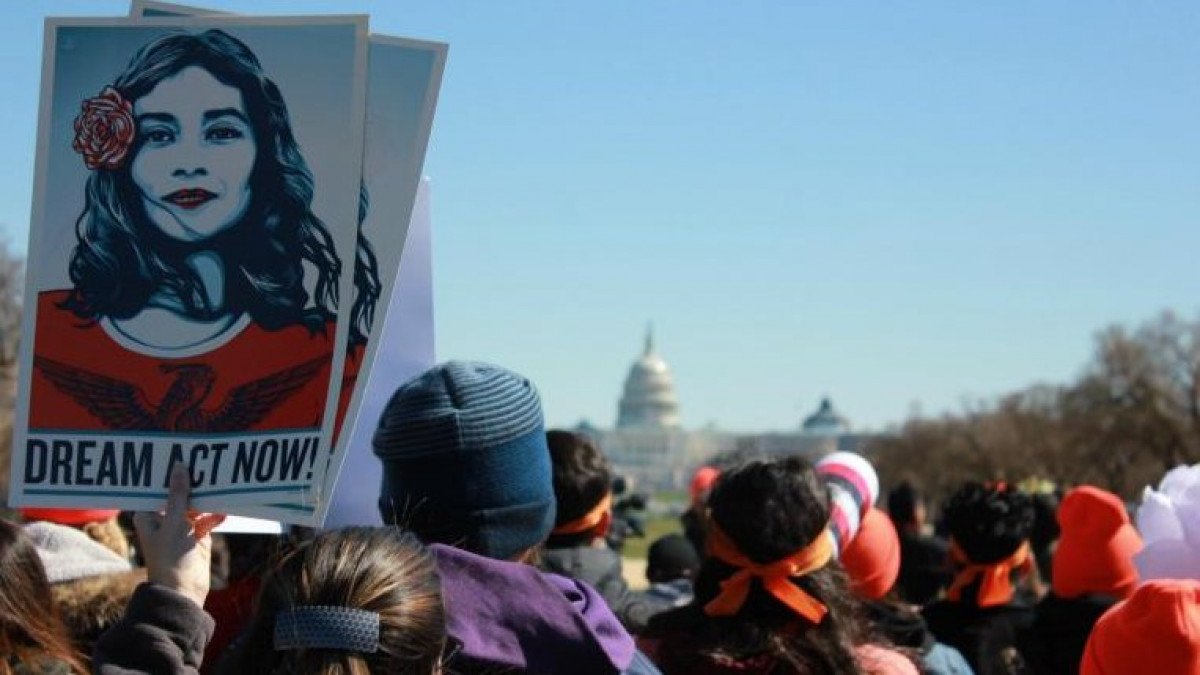
With the suspension of the DACA Plan, many immigrants are at risk of deportation. Author: Flickr Published: 26/05/2018 | 08:00 pm
President Donald Trump did not miss the opportunity and in a message for May 20 – that day when the Republic began in Cuba, mediated by a Platt Amendment that reduced its independence and sovereignty in favor of the United States and its geopolitical and economic interests – he expressed the hackneyed message about a country that claims to suffer under a “tired communist regime.”
So boring that it is not worth paying much attention to the statement on the official White House website.
However, that same Sunday, Hillary Clinton, his failed Democratic challenger, who still thinks and regrets the mistakes she made in the 2016 elections, spoke to the graduates of Yale University – her Alma Mater in law school – and was adamant in judging the situation in her country and the main value that the U.S. leaders have hoisted against Cuba as if we were suffering from it.
“Right now, we are living through a total crisis in our democracy,” the former secretary of state said. “There are no tanks on the streets now, but what is happening right now enters the heart of who we are as a nation. I say this not as a Democrat who lost an election, but as an American afraid of losing her country.”
Very serious in her assessment, Clinton said, “Our country is more polarized than ever. We ourselves have classified into opposing camps, and they divide how we see the world. There are more liberals and conservatives than there used to be and less centrists. Our political parties are more ideologically and geographically consistent…. There are more divisions of race and religion than ever before…”.
Roughly she said: “There are leaders in our country who shamelessly incite with hate speech, who fear change, who see the world in terms of zero-sum, where if some are winning, others must be losing. That’s a recipe for polarization and conflict.
An analysis of the speech at Yale shows that Hillary seemed sadder than angry and – not mentioning Trump at any point, everyone present knew that he was the target of the references – appealed to the trials of other American politicians. But the vision chosen is not flattering; what is more, it falls into the category of a worrying warning.
For example, she chose quotations from a new book by former Secretary of State Madeleine Albright, Fascism: A Warning, and from two titles by Timothy Snyder, professor of history at Yale University: In Tyranny and The Road to Freedom.
As is well known, Trump has attacked certain sectors of the press and accused them of being propagators of false news to the point that the term fake news is already recognised without translation in almost all languages, and the day before, in a tweet, he had described Mrs Clinton as ‘dishonest’.
“To abandon deeds is to abandon freedom. If nothing is true, then no one can criticize power because there is no basis for doing so. If nothing is true, then everything is spectacle,” noted one of the former presidential candidate’s statements. That loudly sounding alarm was considered important by Mrs. Clinton, “because trying to erase the line between fact and fiction, truth and reality is a characteristic basis of authoritarianism.
And she didn’t limit herself to the opinions of Democrats, she also went to Rex Tillerson – who was recently appointed by Trump as Secretary of State – who, in a speech last week to the Virginia Military Institute, said that the United States was “on a path to renouncing our freedom,” if the leaders didn’t speak the truth. With pessimism to be reckoned with, Clinton said, “Maybe a little late, but he’s absolutely right.
And in today’s dissection of the United States, she continued: “There are certain things that are so essential that they must transcend politics,” and “evidence and facts that must alarm us all,” in what he called “waging a war against the rule of law and press freedom, delegitimizing elections, committing shameless corruption, and rejecting the idea that our leaders should be public servants undermines our national unity.
Of course, in the Clinton diatribe, the interests of a party, half-time in an election year lies behind, but the facts are the facts, and Hillary Clinton approached them from macroeconomic and social indicators: “You have learned that you don’t need to be an immigrant and be outraged when the father of a classmate… is unjustly deported” (…) “You don’t need to be a person of color to understand that when black students feel singled out and targeted, there is still work to be done. And you don’t need to experience the violence of a gun…. Enough is enough.
In the United States, children die in school because of the work and grace of an obsessive gun culture, dictated by the profits made by that industry and the politicians who respond to it because it fills their pockets. Trump is not the only culprit, but it is his turn to face it; however, it is far from his vision and interests.
More Americans die in these shootings than in the wars in which the empire is engaged, and no one doubts that life is the greatest of human rights.
A few days ago a black citizen was arrested for his Facebook messages against racist violence, and four students from the group that participated in an anti-gun demonstration in front of the office of Senate Chief Paul Ryan at the Capitol were also arrested, This clearly shows the lack of respect for freedom of expression that the empire’s administrator proclaims and protects its Magna Carta.
Judge Naomi Reice Buchwald, of the Southern District Court of New York, has just said that President Trump’s Twitter account is a public forum and blocking response messages with different opinions constitutes discrimination and violates the First Amendment to the Constitution; but a Justice Department spokesperson replied that they disagree with the court’s decision and is considering steps to be taken that will protect the president.
It was also reported that the National Security Agency (NSA), under the auspices of the Foreign Intelligence Surveillance Act (FISA), recorded more than 530 million phone calls in 2017, a dramatic increase in espionage from 151 million in 2016.

These are just some of the violations of those political and civil rights of American citizens, of the laws that privilege a government and a system of the rich and for the rich. Also, much can be said about the pressures, arm twists, unilateral sanctions, aggressions, wars and military interventions that call into question its self-given role as the perfect state, capable of judging and punishing others, and closing its eyes to its own domestic macro-problems and enormous flaws.
Subscribe to Blog via Email
| M | T | W | T | F | S | S |
|---|---|---|---|---|---|---|
| 1 | ||||||
| 2 | 3 | 4 | 5 | 6 | 7 | 8 |
| 9 | 10 | 11 | 12 | 13 | 14 | 15 |
| 16 | 17 | 18 | 19 | 20 | 21 | 22 |
| 23 | 24 | 25 | 26 | 27 | 28 | |





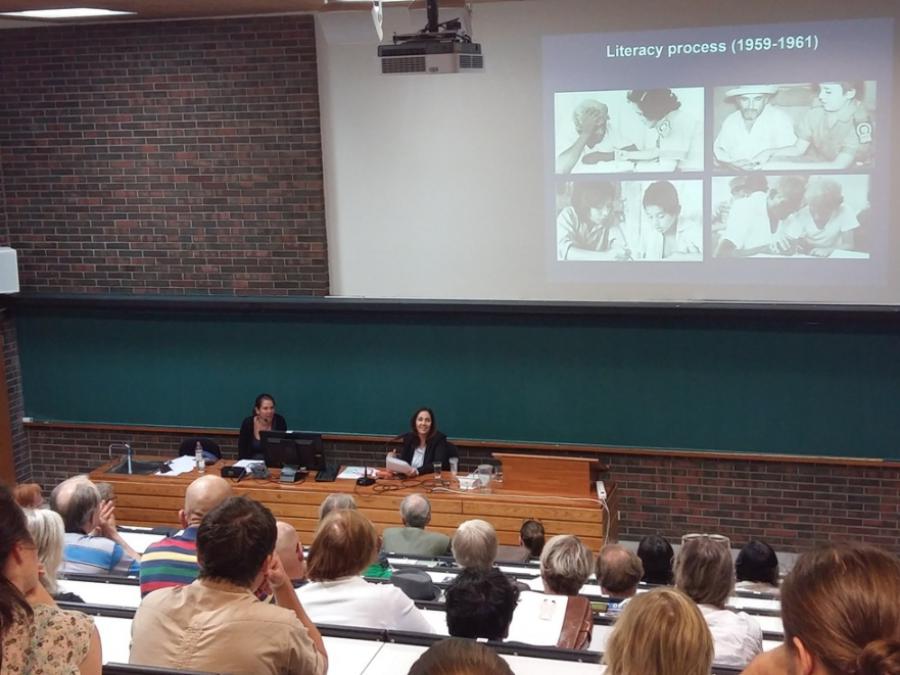
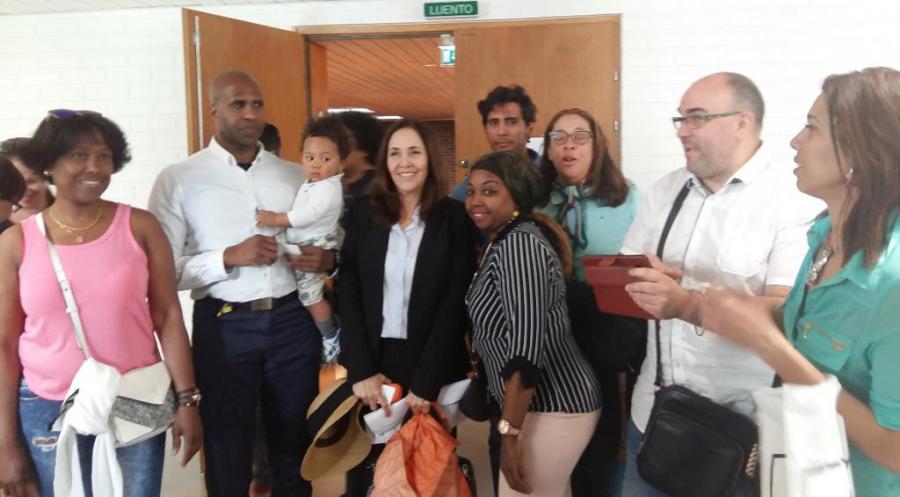
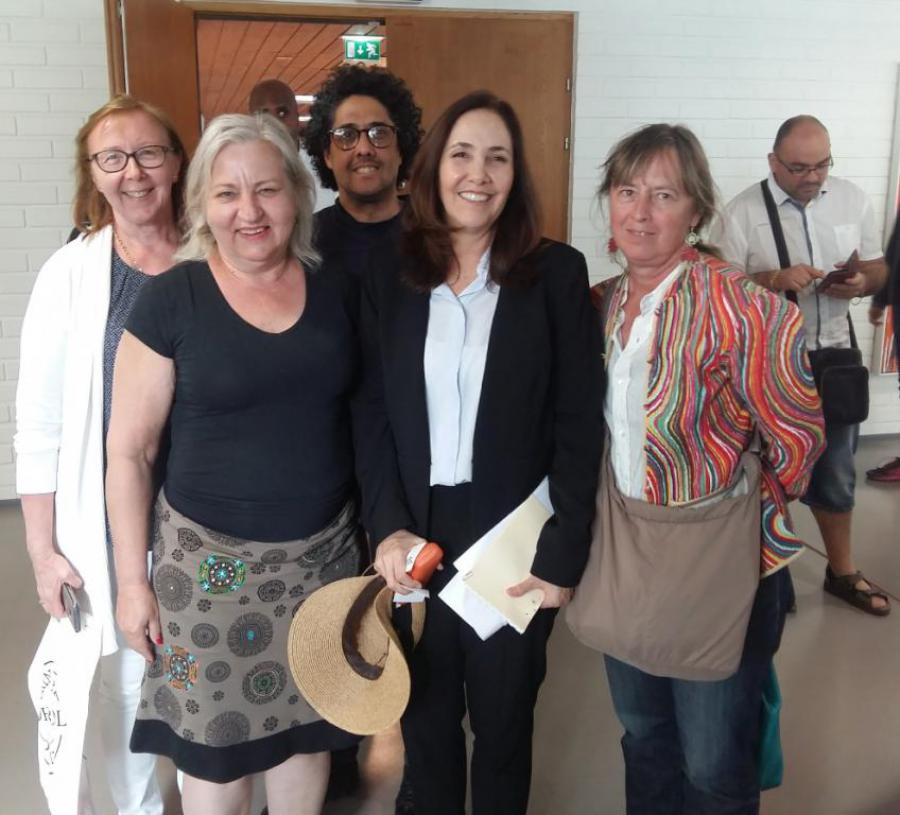

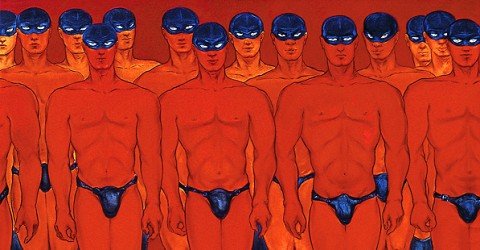



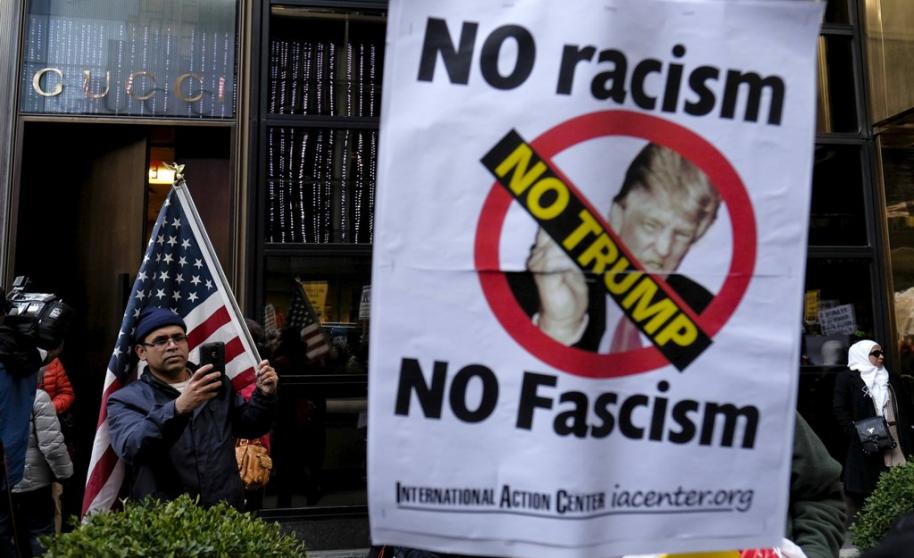

You must be logged in to post a comment.